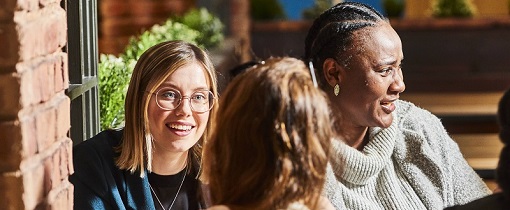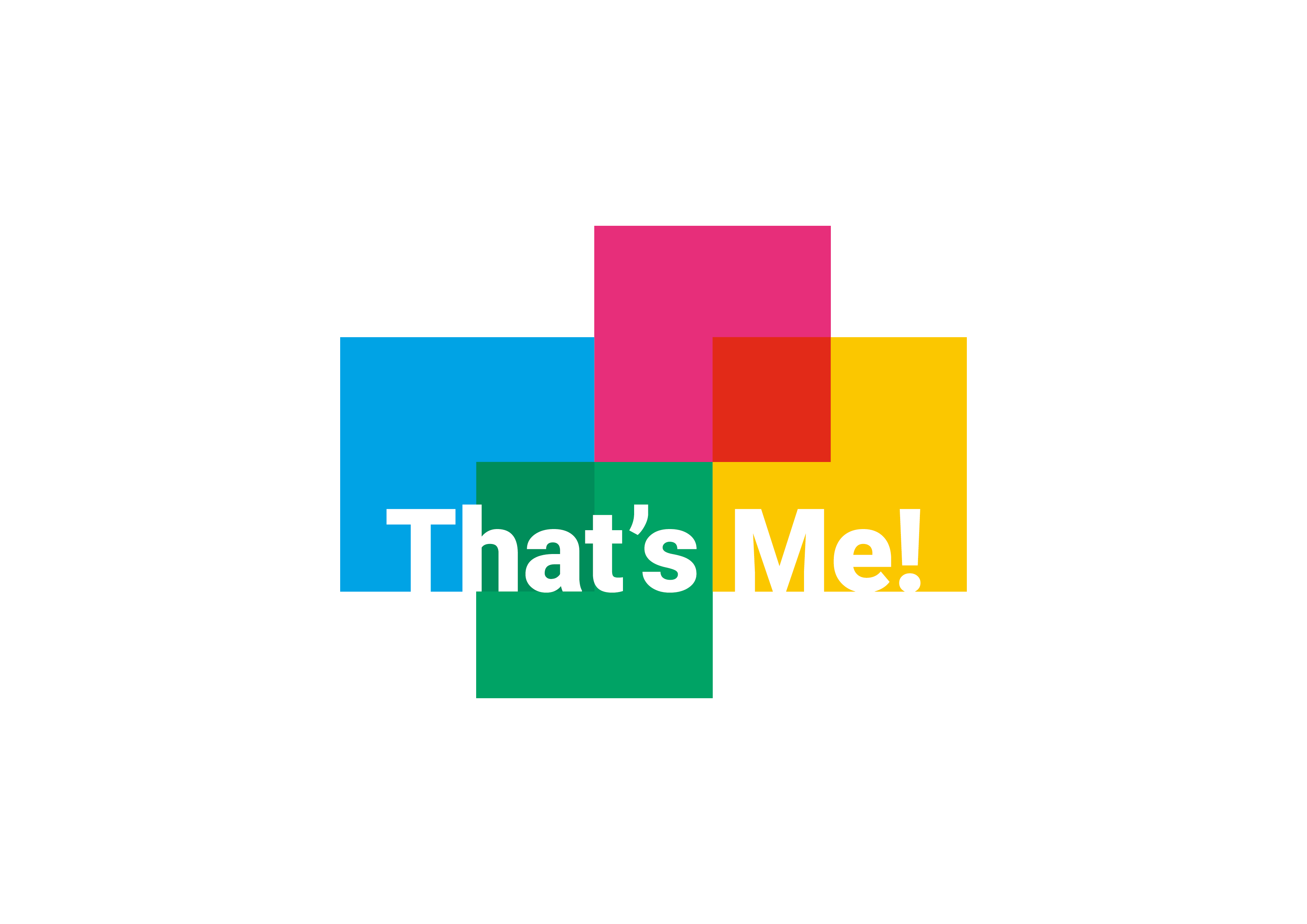
The University of Wolverhampton, in partnership with Birmingham City University, proudly presents That's Me! Eliminating Barriers to Postgraduate Research Study in the West Midlands. Funded by UKRI and the Office for Students, this initiative aims to widen participation in postgraduate research, focusing on UK domicile students from Global Majority ethnicities.
"Global Majority" refers to individuals who are Black, Asian, Brown, dual-heritage, indigenous to the Global South, or racialised as 'ethnic minorities'. This term highlights their diverse backgrounds and contributions. Our project is dedicated to improving access and opportunities for these students in the West Midlands.
Overview of Our Workstreams
That's Me! is organised into targeted workstreams designed to tackle specific challenges faced by Global Majority students. These include creating inclusive application processes, revising induction programmes, and fostering supportive communities. Our goal is to transform academic processes and support systems to enhance equity and representation.
Co-Creation with Global Majority Postgraduate Researchers
Central to That's Me! is our commitment to co-creation with Global Majority PGRs. We believe that involving these students in the design and implementation of our initiatives ensures that our solutions are relevant and effective. By incorporating their insights, we aim to drive meaningful change and promote equity in postgraduate research.
Our Workstreams
At the University of Wolverhampton, we are committed to advancing equity and inclusion through a series of dedicated workstreams focused on enhancing the experience of Global Majority Postgraduate Researchers (PGRs). Each workstream is designed to address specific challenges and opportunities, ensuring that our efforts are both comprehensive and impactful.
Lead: Dr. Opinderjit Takhr
This workstream is dedicated to enhancing the recruitment and success of Global Majority (GM) Postgraduate Researchers (PGRs). It examines the pathways available to GM PGRs, identifies standalone and interconnected barriers, and addresses systemic challenges and institutional biases.
In addition to working within academic circles, this workstream will collaborate with non-academic community members to gain insights into their understanding of PGR opportunities and the cultural barriers they face. It will also engage with industry partners to gather their perspectives, ensuring a holistic view of the challenges and opportunities for GM PGRs.
The aim is to develop actionable, intersectional recommendations that foster a more inclusive environment, supporting the academic and professional advancement of GM PGRs and promoting greater equity and representation within the academic and professional sectors
Lead: Prof. Subashini Suresh
This workstream is focused on enhancing internal processes to better support Global Majority (GM) Postgraduate Researchers (PGRs). The goal is to create a more inclusive environment through several key initiatives, co-created with GM PGRs.
A new, more accessible online application system will be developed to encourage greater GM participation. Induction processes will also be restructured to provide a more welcoming experience for GM doctoral researchers.
Monthly open forums will be introduced to challenge perceptions about GM access to PGR opportunities, fostering open dialogue and continuous improvement. The workstream will collaborate with non-academic community members and industry partners to understand cultural barriers and ensure a holistic approach to inclusivity.
Best practice documentation will be created to guide ongoing efforts and share successful strategies
Lead: Dr. Metka Potocnik
This workstream aims to challenge and reshape perceptions around Global Majority (GM) access to Postgraduate Research (PGR) through creative and collaborative initiatives. By co-producing a performance and a visual arts piece, the workstream will encapsulate GM PGR perspectives on Equality, Diversity, and Inclusion (EDI). These artistic expressions will serve as powerful tools to communicate and promote EDI within the academic community.
In addition to these creative outputs, the workstream will produce a comprehensive report with recommended enhancements for the University of Wolverhampton's EDI training and policies. This report, informed by the insights and experiences of GM PGRs, will offer actionable suggestions to improve inclusivity and support.
The workstream's efforts, co-created with GM PGRs, aim not only to raise awareness but also to provide practical, lasting changes within the institution. Best practice documentation will be developed to guide future initiatives and ensure ongoing progress in fostering an inclusive academic environment.
Lead: Prof. Vijay Reddy
This workstream focuses on enhancing the workplace integration of Global Majority (GM) Postgraduate Researchers (PGRs) through strategic initiatives developed in collaboration with a consortium of 14 project partners.
A key component of this workstream is the creation of a Professional Development Virtual Hub, which will serve as a central resource for GM PGRs. The Hub will be launched by January 2025 and will include a seminar series with 10 sessions involving employers, running through to October 2025.
To ensure its effectiveness, an evaluation report of the Hub will be co-produced with GM PGRs, providing valuable insights for continuous improvement. The workstream is also committed to maintaining and enhancing the Professional Development Virtual Hub into the 2025/26 academic year.
These efforts aim to provide GM PGRs with the resources and support needed to successfully integrate into the workplace, bridging the gap between academic research and professional careers. Best practice documentation will be developed to guide ongoing and future initiatives.
Leads: Prof. Tracey Davenport, Dr. Jenni Jones, Dr. Debra Cureton
This workstream is dedicated to implementing a Reverse Mentoring Programme at the University of Wolverhampton (UoW). The programme is designed to foster mutual learning and understanding between senior research staff and Global Majority (GM) Postgraduate Researchers (PGRs), with the goal of enhancing awareness of the challenges and perspectives faced by GM students within the university.
As part of this initiative, a comprehensive implementation report will be produced, specifically focusing on the experiences and outcomes at UoW. This report will detail the processes, successes, and best practices derived from the reverse mentoring programme, providing insights that can inform its continued use and potential expansion within UoW.
The workstream aims to create a more inclusive academic culture at UoW, where the voices of GM PGRs are actively engaged, and where senior staff gain valuable perspectives that can influence leadership and decision-making across the university.
Leads: Dr. Suresh Renukappa, Kerensa Hodge
This workstream is focused on establishing a Community of Practice (CoP) at the University of Wolverhampton that feels like a home away from home, offering a safe environment and a strong peer-to-peer support network for Global Majority (GM) Postgraduate Researchers (PGRs).
Key initiatives include developing a comprehensive report on best practices for creating such a CoP, with particular emphasis on the concepts of "home-from-home," safe spaces, and peer-to-peer support. Tailored initiatives will be delivered to reinforce these elements, ensuring that the CoP effectively meets the needs of GM PGRs.
The workstream will also evaluate the quality and impact of the CoP, with the support of peer researchers, to ensure its effectiveness and sustainability. Additionally, the workstream will spotlight current UK domicile researchers within the region through tailored initiatives, including podcasting and campaigns, to advocate for better representation and inclusivity at the University of Wolverhampton.
Lead: Dr. Debra Cureton
This workstream is dedicated to the creation and piloting of an Enhanced Research Skills Programme specifically at the University of Wolverhampton (UoW). The programme will build upon UoW’s existing pre-research degree support, offering targeted assistance to aspiring Global Majority (GM) applicants who wish to transition into Postgraduate Research (PGR).
Central to this workstream is the development of a co-produced, open-access bridging support resource designed to guide and support prospective GM PGR applicants. This resource will be tailored to address the unique challenges and needs of these applicants, helping them successfully transition into PGR studies. The bridging support resource is set to be available by September 2025.
Although the efficacy of these resources will be evaluated, this assessment will occur outside of the current award period. The goal of this workstream is to provide ongoing, accessible support that empowers more GM students to embark on research degrees at UoW, fostering greater inclusivity and representation in academia.
Lead: Dr. Roya Rahimi
This marketing workstream is focused on raising aspirations among Global Majority prospective Postgraduate Research (PGR) students at the University of Wolverhampton (UoW) through a strategic and inclusive recruitment campaign. The campaign will address barriers to PGR participation by utilising targeted communication, social media outreach, and partnerships with employers to highlight the benefits of PGR studies for Global Majority individuals.
The initiative includes the development of a communication plan tailored specifically to Global Majority audiences, ensuring their positive representation on UoW’s digital platforms. Additionally, the workstream will create and disseminate case studies that celebrate the successes and achievements of Global Majority PGR students, aiming to inspire others to pursue research opportunities.
The ultimate goal of this marketing workstream is to attract more Global Majority students to PGR programmes, enhancing diversity and fostering a more inclusive academic environment at UoW.
Lead: Institute of Community Research and Development – Prof. Laura Caulfield
This evaluation workstream, led by the Institute of Community Research and Development, is focused on assessing the activities, outcomes, and impacts of the project by working closely with the project team to translate these into a Theory of Change (ToC). The team will establish baseline data collection protocols and develop good practice documents to guide the evaluation process.
An innovative approach will be taken to engage Global Majority PGR students as peer researchers, ensuring their active involvement in the co-production and co-design of the evaluation process. This collaborative approach will help to ensure the evaluation is both inclusive and reflective of the experiences of Global Majority students.
The workstream will produce interim and summary reports every six months, providing ongoing insights into the project's progress. A final evaluation report will be completed at the project's conclusion, offering a comprehensive assessment of its overall impact and effectiveness.
Get Involved
LinkedIn: That's Me
Twitter: @ThatsMePGR
Email: Loreal Stokes, Project Manager - l.stokes2@wlv.ac.uk


/prod01/wlvacuk/media/departments/digital-content-and-communications/images-18-19/iStock-163641275.jpg)
/prod01/wlvacuk/media/departments/digital-content-and-communications/images-2024/250630-SciFest-1-group-photo-resized-800x450.png)
/prod01/wlvacuk/media/departments/digital-content-and-communications/images-18-19/210818-Iza-and-Mattia-Resized.jpg)
/prod01/wlvacuk/media/departments/digital-content-and-communications/images/Maria-Serria-(teaser-image).jpg)
/prod01/wlvacuk/media/departments/digital-content-and-communications/images-2024/241014-Cyber4ME-Project-Resized.jpg)
/prod01/wlvacuk/media/departments/digital-content-and-communications/images-18-19/210705-bric_LAND_ATTIC_v2_resized.jpg)


